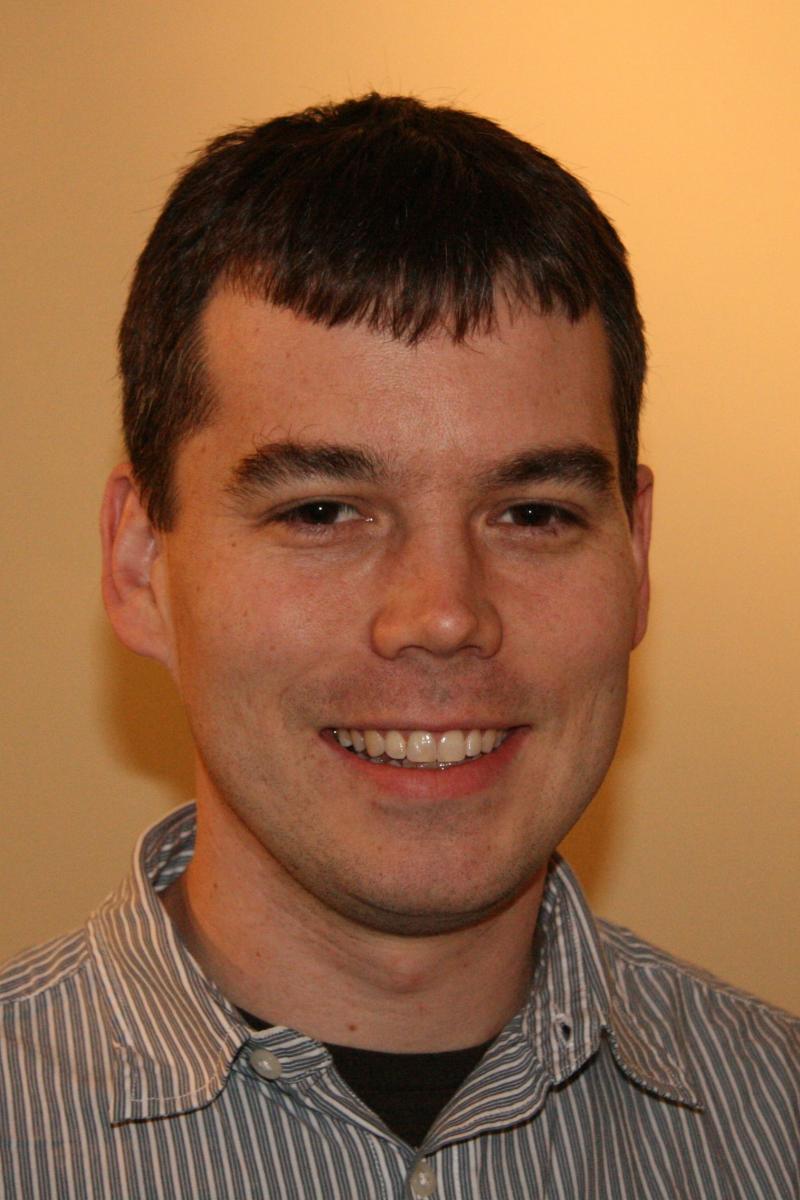Faculty Profile: Shane Davis


Shane Davis is an assistant professor in the Department of Astronomy. He has focused much of his research as a theoretical astrophysicist on the study of accretion physics and radiative transfer. Much of his work involves the role feedback from the formation of stars may play in galaxy evolution. Before arriving at U.Va. this summer, Davis was a senior research associate at the Canadian Institute for Theoretical Astrophysics. He earned his Ph.D. in physics from the University of California, Santa Barbara in 2006 and has a B.S. in physics from Carnegie Mellon University.
Hometown:
Mandan, North Dakota
Hobbies:
Between work and raising my two young daughters, I don't have much time for hobbies, but I usually read fiction when I need some downtime. Before my kids were born, hiking and backpacking were my major hobbies. Now that the kids are a bit older and I live in a place where good hiking trails are readily accessible, I plan to get out more regularly.
How did you spend this summer?
Moving from Toronto to Charlottesville! I also managed a month long trip to Santa Barbara, Calif. I went for work, but it included lots of visits with friends and family, along with some backpacking and day hikes in Los Padres National Forest.
Tell us something about yourself that people would be surprised to hear.
Even though I am an astronomy professor, I have never used a telescope professionally. Most people find that rather surprising, but it is not that uncommon for theoretical astrophysicists.
Who is your greatest hero, and why?
I admire lots of people, but no one I would call my hero. However, when I was a kid, I wanted to be like Albert Einstein because he was such a brilliant and creative scientist. Later in life, I had the fortune to spend four years as a researcher at the Institute for Advanced Study [in Princeton, N.J.], where Einstein lived and worked after coming to the U.S. I think the 12-year-old version of myself would have found that pretty awesome.
Tell us about your most embarrassing moment.
It is hard to pick any single one. I have stuck my foot in my mouth so many times, but I am fortunate than none of them were so bad that not one of those incidents stand out above the rest.
What is the best place you’ve ever lived or visited, and why?
I've visited too many amazing places to pick one. The best place I have ever lived, though, was Santa Barbara, Calif., where I attended graduate school. I loved the mountains, the ocean, the weather, and the food. Plus, there are so many great places to visit and things to do within driving distance of Santa Barbara.
Thinking about the role of technology in education, what will the U.Va. learning experience be like in 2030?
It is hard to predict, as technology has already significantly changed how material is taught from when I was an undergraduate. In astronomy and other natural sciences, I expect there to be even more emphasis on computational tools and methods at all education levels.
Strong computational skills are becoming a huge asset in so many areas of scientific research, and in non-science fields as well.
Since arriving, what have you most enjoyed most about Charlottesville and U.Va.?
I just arrived, so the answer may change, but so far I have enjoyed how friendly and helpful everyone has been as my family and I have been settling in.
If money were no object, what else would you like to pursue?
For me, it is really time that is the biggest limitation, rather than money. If I had another 10 hours per day, I would like to do research in climate science. Much of the skills and expertise one needs are similar to those used in my astrophysics research. The questions are equally interesting, and the problems being addressed are so important.
What advice would you give to first-year students?
Ask faculty lots of questions, and take advantage of their office hours. This applies even if you are doing well in the course. Most professors are capable and willing to teach you much more than they can fit into their lectures.




